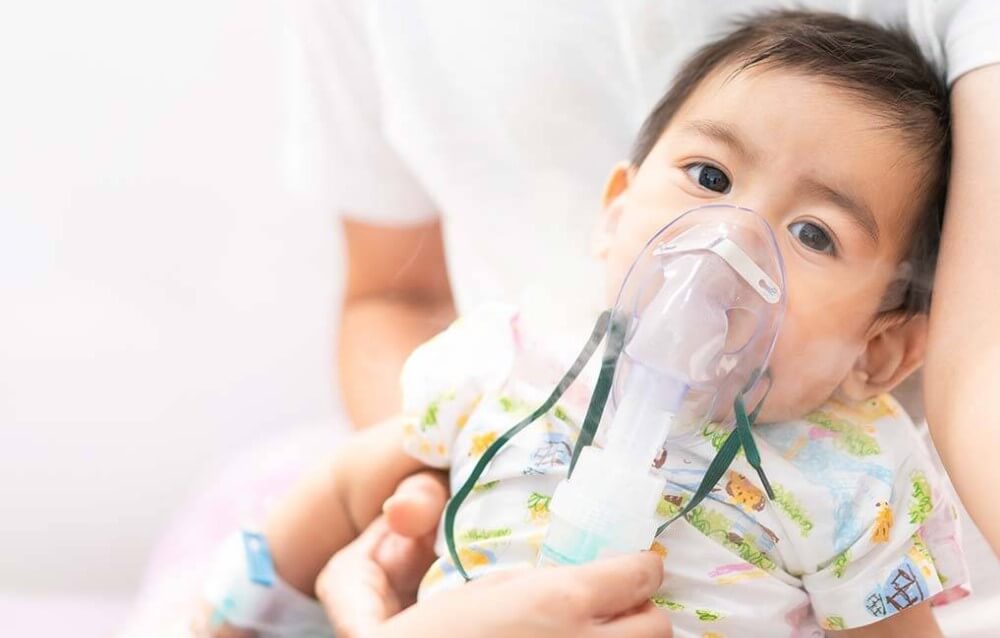RSV, also known as respiratory syncytial virus, may cause serious illnesses in newborn babies, yet it receives far less attention than the flu. According to doctors, the following information on RSV is essential to know, from symptoms to available treatments. You may gather the required information regarding RSV such as Which signs indicate RSV?, What are the probable health effects? How RSV is being treated?, etc. from the best child hospital in Ahmedabad.
If you have a baby, keep an eye out for another potentially deadly illness in the late fall, winter, and early spring as if colds and flu weren’t enough. RSV, or respiratory syncytial virus, is the name of this virus and it can make your kid very ill. Even worse, it may be harmful, particularly for very young children, the elderly, and anybody with a weakened immune system. However, while being fairly prevalent (some studies suggest that by the time children reach 2, virtually all have experienced RSV at least once), it doesn’t receive nearly as much attention as the flu.
How can you know if your infant has RSV?
Infants, kids, and adults can develop acute respiratory tract infections from the RSV virus. RSV, also known as respiratory syncytial virus, is a respiratory cold virus that hurts the lungs, nose, and throat. Although the symptoms of RSV in adults are mild and resemble those of the common cold. As per the study, an estimated 57,000 children under the age of 5 are hospitalized in India every year as a result of the infection, and the numbers are rising.
RSV’s early signs might include:
- Clogged nose
- Reduction in appetite
- Coughing, which might turn into wheezing
The sole signs of RSV infection in extremely young infants (less than 6 months old) might be:
- Irritability
- Decline in activity
- A diminished appetite
- Apnea (pauses while breathing)
How should children with RSV be cared for?
Since RSV is a virus, antibiotics are unfortunately ineffective against it. Instead, the most crucial things parents can do for their children following an RSV diagnosis is to gently suction mucus from the nose after delivering nasal saline spray, use a cool-mist humidifier, and concentrate on hydration.
RSV can occasionally cause patients to have so severe respiratory problems that they need oxygen or an IV to make sure they get enough water. Hospitalization can occur even if it is uncommon. Sneh Children’s Hospital the best child hospital in Ahmedabad has experts who can treat RSV.
What treatment is considered for the RSV-infected infant?
RSV can be challenging to diagnose, and it can also be challenging to treat. That’s because there isn’t actually a prescribed course of action but the best pediatrician in Ahmedabad can help you. Antibiotics are ineffective against RSV since it is a virus rather than an infection. You’ll probably need to get out the nasal aspirator and humidifier for a week or two if your child has RSV.
However, babies can require a greater level of care in more serious circumstances. Some babies just need smaller, more frequent feedings and mucus suctioning from their noses. Babies may require oxygen, intravenous (IV) fluids or additional breathing help from different forms of respiratory support for more serious illnesses.
What steps to take to prevent RSV in kids?
Take particular care to protect the newborn’s health if you come into touch with an infant or young kid by taking the necessary precautions:
- Clean the surfaces – Surfaces and items that kids commonly contact, such as toys and doorknobs, should be cleaned and disinfected. RSV-infected individuals may spread germs when they touch surfaces and items.
- Wash your hands often – The CDC (Center for Disease Control & Prevention) advises adults to often wash their hands with soap and water for 20 seconds and to assist small children in doing the same. If soap and water are not available, sterilize your hands using an alcohol-based product.
- Cough and sneeze into your hand – When you cough or sneeze, cover your mouth and nose with a tissue or the upper sleeve of your shirt. A wise habit is to refrain from touching your mouth, nose, or eyes with unclean hands.
- Stay at home if you are ill – Although rather clear, it is crucial. When you are ill, try to avoid going to work, school, and public places.
When to take your infant to the pediatrician?
Given that the symptoms of RSV are so similar to those of all the viruses that are prevalent in the autumn and winter, it is a challenging condition to identify. If you suspect your newborn may have the sickness, now is the time to take them to the top pediatrician in Ahmedabad so they can do a few tests to confirm an RSV diagnosis.
Your physician can use a cotton swab to collect nasal secretions and perform one of two RSV tests: either a quick test (an immunoassay) that yields quick results, or a test that also includes other respiratory viruses that normally take a bit more time.
Meta Description: Important things you need to know about RSV in infants and what you should do if your child or infant is at high risk of it.
Also check about – Tips On How To Have A Healthy Pregnancy For New Moms




October 3, 2022
[…] Popular post – RSV In Infants And Children: What Mothers Need To Know! […]